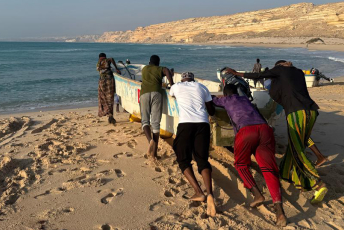In October, East African police chiefs and their ministers demonstrated their commitment to eradicating cattle rustling by respectively adopting and signing a revised Mifugo Protocol. ‘Mifugo’ is Swahili for ‘livestock’. The term cattle rustling is commonly used to include all types of livestock. The protocol is an inter-state legal framework that seeks to harmonise and strengthen police cooperation and joint strategies in the East Africa region to address cattle rustling; a complex transnational organised crime.
In the past four decades, increasing criminal network activities have transformed cattle raiding (a traditionally accepted cultural practice) into cattle rustling – a violent commercialised form of livestock theft. Contrary to the traditions of raiding, there are no rules beyond ensuring maximum profit. The negative impacts to social cohesion within local communities are mounting. Signing this new protocol is the second attempt at tackling this problem in the region after East African states failed to implement the original protocol passed by 11 countries in 2008.
In 2019, an ENACT research paper on cattle rustling recommended that the 2008 Mifugo Protocol be reviewed and revised, as it hadn’t been implemented by member states. This recommendation was adopted by the Eastern Africa Police Chiefs Cooperation Organization (EAPCCO), which requested technical help from ENACT to carry out this process.
ENACT set up a joint committee with EAPCCO and helped develop a roadmap for the review. From February 2020, ENACT supported several key engagements among different EAPCCO entities such as the National Central Bureau, Criminal Investigation Departments and the Legal Sub-Committee.
A documentary film commissioned by ENACT and EAPCCO highlighting the problem was broadcast to the police chiefs at the EAPCCO Annual General Meeting in mid-October. This coincided with the signing of the Revitalised Mifugo Protocol, and emphasised the harms associated with cattle rustling and highlighted the potential of the protocol to bring peace to communities in the region.
To give life to the new protocol, two key amendments not in the 2008 version have been added. First, the protocol has already been entered into force while awaiting ratification by the respective national parliaments, allowing it to be immediately operational. Second, an implementation unit is provided as part of the protocol. This unit will promote the practical application of the protocol at the regional level, giving it internal implementation mechanisms that shield it from political bureaucratic processes.
The protocol also now includes provisions that allow for tackling cattle rustling on many fronts involving a diverse range of stakeholders. It lays out offences that constitute cattle rustling offences, and confirms the practice as a form of transnational organised crime with links to arms trafficking and recruitment and use of child soldiers. The protocol also reaffirms the linkages between cattle rustling and terrorism financing.
Technology such as microchips for livestock identification and tracking is promoted as a tool to facilitate the identification and tracing of stolen livestock. Provision for cross-border investigations through mutual help within states is laid out. This provision is supported by interrelated clauses such as conducting joint investigative missions and the treatment and handing over of suspects.
The protocol emphasises the involvement of more non-state actors and the roles they are to play in conducting public education and awareness programmes with the aim of empowering pastoral communities. These actors include civil society organisations, international development partners, international agencies, the private sector, academic institutions, herders’ associations, as well as women, youth and the media.
Now that the protocol has been entered into force, three key next steps are crucial for it operationalisation. At a regional level, efforts to ensure that member states prioritise, commit to effective responses to disrupt and reduce cattle rustling crimes and associated violence. A concerted effort to manage the cross-border nature of cattle rustling will require states to plan and operationalise response together if the region wishes to see increased security to communities in the region.
Here both financial and other resources will be a clear demonstration of the required political will from states. This may be in the form of annual budgetary contributions or allocations, and the secondment of law enforcement officers to the protocol’s new implementation unit. At a national level, the regional actions will be supported by livelihood and development action plans in pastoralist areas that are affirmative, implementable and complementary to the protocol.
Such plans could have provisions for government investment in education, health, security and infrastructure development. They could also have provisions to address enduring socio-cultural limitations in pastoralists’ livelihoods. These have the potential to reduce systemic poverty, de-politicise inter-community relations, and confiscate communal cattle in order to recover and return stolen livestock.
Lastly, collaborating with non-state actors such as development partners and the private sector to support the protocol’s implementation is crucial. The revitalised protocol recognises the role of such actors in implementing community programmes that will benefit the livelihoods of pastoralist communities.
Implementation and operational gaps have been addressed in the protocol. The protocol in its new form has what it takes to address cattle rustling at the regional, national and community levels, involving both law enforcement efforts by member states and development interventions by non-state actors.
East African governments, together with a range of stakeholders, are able to translate the spirit of the protocol to now turn the tide on the decades of socio-economic and political marginalisation of pastoralist lands in the region, and respond to overcoming the scourge of cattle rustling.
Mohamed Daghar, Regional Coordinator, Eastern Africa, ENACT Project, ISS and Willis Okumu, Senior Researcher, ISS







